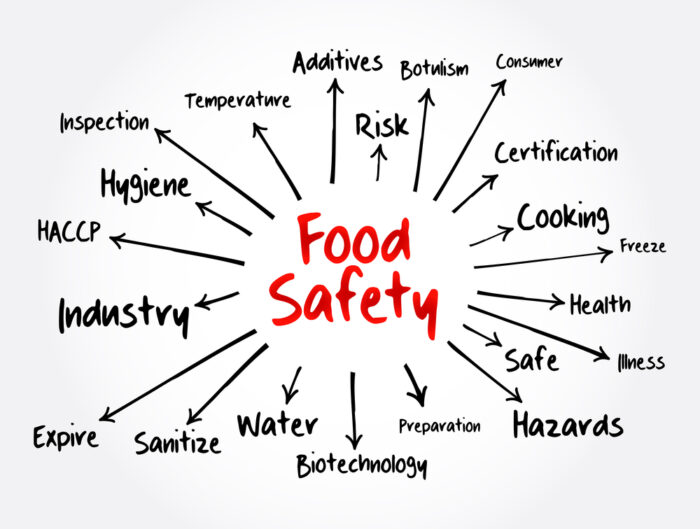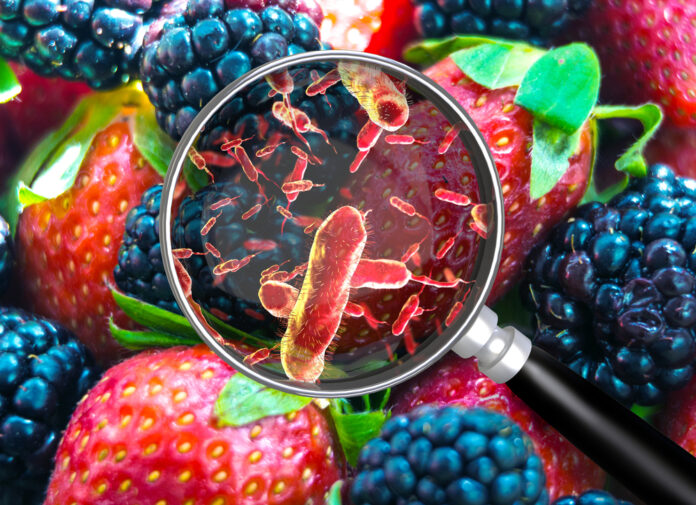According to experts, millions of people suffer from foodborne diseases across the world. Fortunately, most foodborne illnesses could be treated at home within a week. However, some patients may experience serious conditions, including paralysis and even death.
Because of these reasons, it is important to intensify the implementation of food safety and hygiene protocols for all food businesses. The main goal of food safety is to prevent the occurrence of foodborne diseases and food poisoning.
Foodborne diseases may happen if someone eats a contaminated product. In addition, there are different causes of food contamination. Here are the common types of food contamination or hazards present in every food manufacturing facility:
- Physical Contamination: Physical contamination is due to the presence of foreign objects in food. It is most likely to occur because of the poor sanitation system. Fortunately, these contaminants can easily be prevented by implementing strict food safety and hygiene guidelines.
- Biological Contamination: Biological contamination happens when a food product is infected with microorganisms, such as bacteria, molds, and viruses. These microbes produce toxins responsible for making your body ill. Since microorganisms cannot be seen by the naked eye, it is more important to impose strict cleaning guidelines to ensure there is no room for pathogens to thrive.
- Chemical Contamination: Chemical contamination occurs when hazardous substances, such as cleaning agents, come into contact with food. Some cases may lead to death, depending on the concentration of the chemical present in food. The common chemicals that may contaminate food products are detergents, bleach, non-food plastics, and pest control substances.
What Happens When You Violate Food Safety Laws?
If it has proven that your business facility has failed to uphold and comply with the Food Safety and Hygiene Laws, you may be liable for these penalties and consequences:
1. Civil Lawsuit – An injured customer may file a lawsuit and claim for damages sustained against you. Because of this, you have to pay the entire medical bills of the patient, including his/her succeeding medical needs. In addition, you might need to pay for other fees, such as lost wages, court fees, and more. Furthermore, paying damages is one of the common legal remedies concerning food safety lawsuits. However, do not belittle these expenses as some may rise as high as USD$8M.
2. Loss of License – This may also happen if it is found out by the court that you did not implement food safety protocols, resulting in one or more victims. In addition, it is more likely for you to receive this penalty if you have a record of the same offense. Remember, if you have no license, then you have no right to operate.
3. Loss of Employment – Your staff members may lose their jobs if your business is found guilty of food safety violations. However, it might happen in two different circumstances: job termination or closure of the food establishment. Remember, the closure of a food establishment usually happens only if it has repeated violations or may have caused severe injuries, including death, to a large group of people.
4. Fines – This is the usual penalty for first-time offenders. These fines are the result of violating food safety laws. In addition, these do not include the compensation for the damages in a civil lawsuit. You may be asked to pay more, depending on the severity of your offense.
5. Loss of Good Reputation – Consumers who are victims of your negligence will not sit idle and do nothing. They will most likely go to social media sites and air out negative feedback against you. This will ruin your reputation with other people, affecting your potential revenues.
Furthermore, even if there are no consumers found to be injured, you may still be liable for legal consequences for violating the law. In this case, the authorities may file a case against you and may require you to pay fines, and you may be offered an injunction to help you prevent this case from happening again.

What Are the Best Food Safety Practices?
Here are the following practices all food businesses need to implement to avoid violating food safety and hygiene regulations:
1. Clean Thoroughly – Ensure that every utensil, tool, and equipment is clean and sanitized before and after production. In addition, a weekly general cleaning may help maintain the cleanliness of the facility.
2. Handwash Regularly – Ensure that all staff members wash their hands before and after production, especially if they are in direct contact with food — even if they use gloves.
3. Store Food Properly – Determine the proper storage condition for each food product and ensure that each is appropriately stored. Also, keep food products away from chemical substances.
4. Restrict Sick Personnel – Make sure that all personnel are free from illnesses and report such cases. You may restrict or exclude staff members, depending on their conditions.
Final Words
Food safety and proper hygiene should always be the top priority of every food business. Failure to implement food safety standards may result in legal consequences, including lawsuits, compensations, and permanent or temporary cessation of operation.
Problems concerning food safety are always due to physical, biological, and chemical contamination. Fortunately, all types can be prevented by implementing strict guidelines, such as proper food storage, maintaining a clean workplace, and more. Furthermore, following food safety standards will save you and your company from facing legal charges from different victims due to your misconduct.
Find a Home-Based Business to Start-Up >>> Hundreds of Business Listings.














































